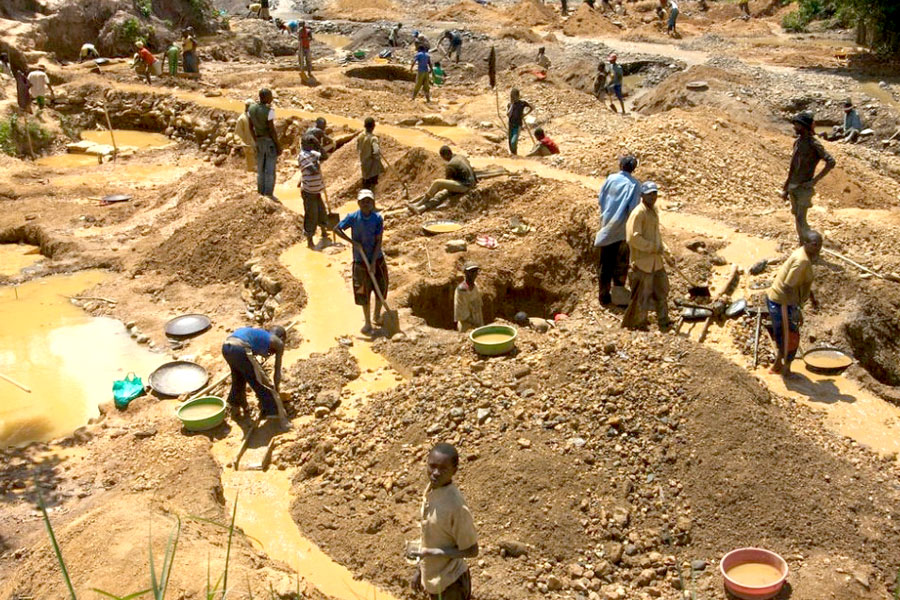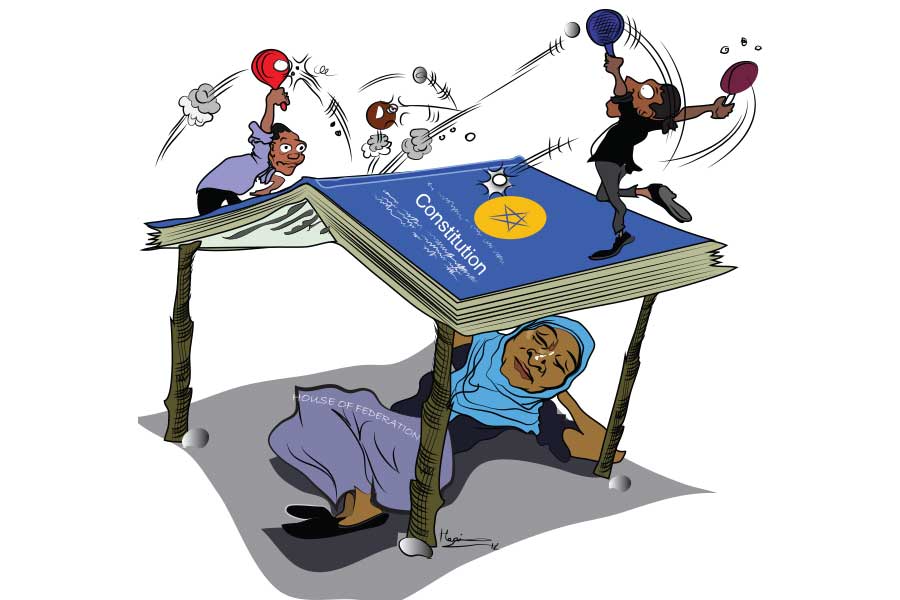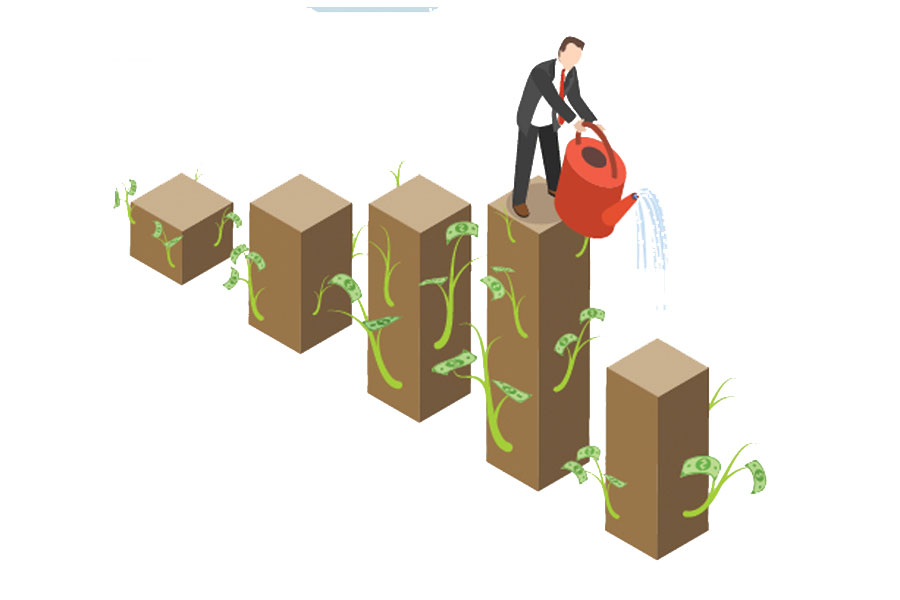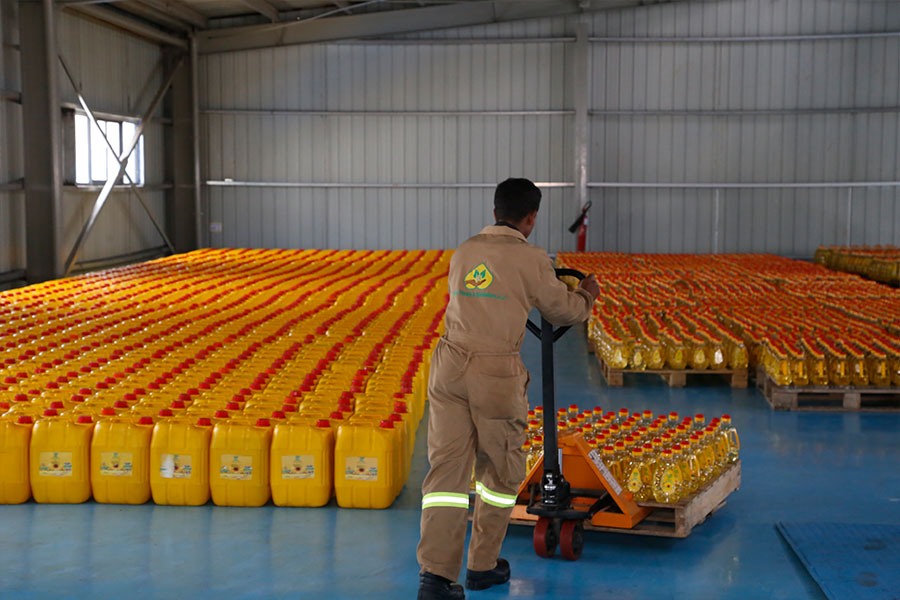
Commentaries | May 25,2019
Mar 28 , 2020
By Eden Sahle
The terrifying fact about life is how little control we have, especially during times of crisis. It is comforting though to observe that, as many are realising, despite where we come from, we are all equal.
Watching the news has become unbearable. The Coronavirus pandemic (COVID-19) has led to hundreds of thousands contracting it and tens of thousands dying. The consequences to the global economy have not been something to baulk at either.
But as the world battles this pandemic, we cannot help but notice that humans are equal irrespective of their economic privileges. It is proving that humankind is indivisible. It is highlighting to us how we all need basic services and how every labourer is crucial to our society.
Loss of human life is painful, and people around the world are feeling a sense of loss and emotional pain as fellow humans are perishing at the hands of an invisible killer.
In the face of this global disaster, we have observed the best and worst sides of people, from those who are volunteering to come to the aid of their fellow human beings and those who are unfairly taking advantage of the crisis.
The current situation is yet another reminder for us to take a step back and embrace impartiality, to avoid the senseless hatred and discrimination we bestow on others based on race, religion, economic status or place of birth. Our energy and time will be of much greater use if we can concentrate on working to support one another.
Amid the crisis, a new horizon has opened. We are being reminded of the importance of ending human prejudice, the perception that one is superior to the other.
This is a disaster, by all means, but it has also opened up a new era to rectify discrimination and scrutinise our societal values. We must think carefully as individuals and support each other as a global community to effectively function as a society. A disciplined and civilised society creates a better world for everyone rather than hampering it.
It is unfortunate that as civilisation progressed, at least economically, it did not help people realise that all human beings, no matter their race, gender, religion or economic status, are equal. A crisis such as the COVID-19 pandemic has given us an opportunity to reconsider our assumptions.
It has shown us that we care about our own lives and about those of our fellow human beings. It has proven the need to stand on solid ground and love one another.
All nations are indeed left in darkness on how to put a stop to this global pandemic. At the same time, we have proven how every human has similar desires and problems. We are witnessing how individuals and societies across the world are similar, whether or not they find themselves in developed countries.
We have practically seen that we all hold the key to create a stable world for everyone to live in, free from any harm and fear. Our leaders have learned that they cannot do anything without global cooperation and that when disaster strikes, no nation can stand on its own.
The pandemic has proven that those who believed their nationality, race or gender makes them superior to others are merely fooling themselves. Flawed cultural perceptions that propagate prejudice have practical lessons to take here.
As much as the pandemic is paining us all, it can also be creating a new order of the world where human dignity and the value of life is revered above all else. The situation is igniting the courage of ordinary people to stand up for human lives and dignity in the face of the global health crisis that continues to destroy lives.
From prosperous to developing nations, no one was prepared for the intensity of the bereavement we suddenly have to live with. It will not be easy to come to terms with the loss of human lives around the world.
Hope lies in the countless people across the world who stood up for fighting the pandemic, risking their lives. There have been wars and pandemics that devastated entire generations, and yet humanity, thanks to its most determined and rational, has persevered.
We will overcome this too. And if we are lucky, we would have learned of the importance and dignity of human life.
PUBLISHED ON
Mar 28,2020 [ VOL
20 , NO
1039]

Commentaries | May 25,2019

Fortune News | May 13,2023

Editorial | May 08,2020

Sunday with Eden | Feb 13,2021

Viewpoints | Dec 09,2023

View From Arada | Jul 23,2022

Commentaries | Jun 08,2019

Viewpoints | Nov 02,2024

Fortune News | Jul 13,2024

Fortune News | Jul 08,2023

My Opinion | 131974 Views | Aug 14,2021

My Opinion | 128363 Views | Aug 21,2021

My Opinion | 126301 Views | Sep 10,2021

My Opinion | 123917 Views | Aug 07,2021

Dec 22 , 2024 . By TIZITA SHEWAFERAW
Charged with transforming colossal state-owned enterprises into modern and competitiv...

Aug 18 , 2024 . By AKSAH ITALO
Although predictable Yonas Zerihun's job in the ride-hailing service is not immune to...

Jul 28 , 2024 . By TIZITA SHEWAFERAW
Unhabitual, perhaps too many, Samuel Gebreyohannes, 38, used to occasionally enjoy a couple of beers at breakfast. However, he recently swit...

Jul 13 , 2024 . By AKSAH ITALO
Investors who rely on tractors, trucks, and field vehicles for commuting, transporting commodities, and f...

Jul 5 , 2025
Six years ago, Ethiopia was the darling of international liberal commentators. A year...

Jun 28 , 2025
Meseret Damtie, the assertive auditor general, has never been shy about naming names...

Jun 21 , 2025
A well-worn adage says, “Budget is not destiny, but it is direction.” Examining t...

Jun 14 , 2025
Yet again, the Horn of Africa is bracing for trouble. A region already frayed by wars...

Jul 6 , 2025 . By BEZAWIT HULUAGER
The federal legislature gave Prime Minister Abiy Ahmed (PhD) what he wanted: a 1.9 tr...

Jul 6 , 2025 . By YITBAREK GETACHEW
In a city rising skyward at breakneck speed, a reckoning has arrived. Authorities in...

Jul 6 , 2025 . By NAHOM AYELE
A landmark directive from the Ministry of Finance signals a paradigm shift in the cou...

Jul 6 , 2025 . By NAHOM AYELE
Awash Bank has announced plans to establish a dedicated investment banking subsidiary...